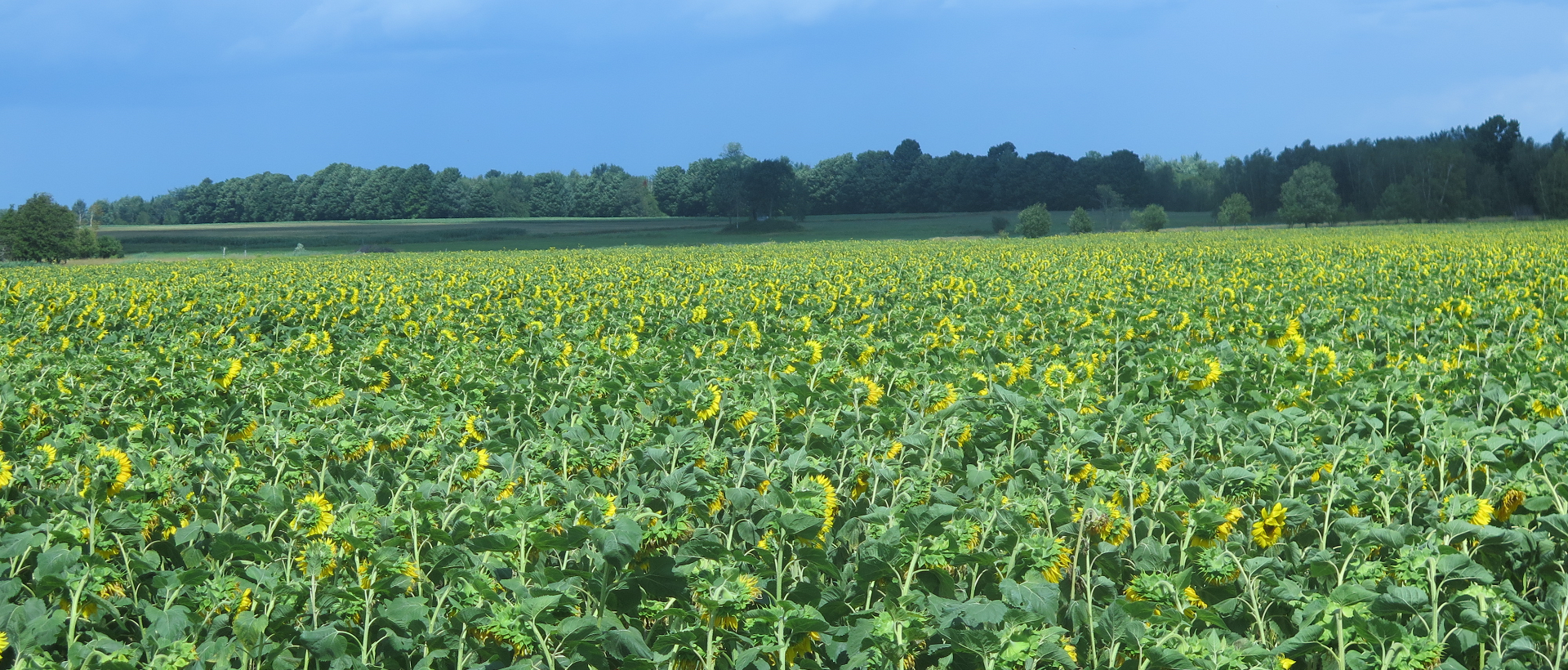We rarely see sunflower fields in these here parts, but the one I saw stretched on forever, a glorious sea of sun-drenched and windblown bobbing heads. Indeed, such a rare occurrence warrants a roadside halt, a determined effort to pause and absorb the visual and sensational overload. In fact, I stopped more than once – only to realize that the flowers seemed equally determined to ignore my admiring gaze, stubbornly turned ever eastward no matter the time of day or the position of the sun. Why the cold shoulder? I found myself wondering. My understanding has always been that sunflowers follow the sun in its daily trek across the sky – from east to west (‘tournesol’). In fact, a timely article in Le Monde reports that scientists (experts in sunflowers, among other things) have observed the following: while the young sunflower bud does indeed follow the sun as it crosses the sky, the mature blossom stands obstinately immobile, facing eastward. The article then waxes lyrical on the subject of circadian rhythms, heliotropism and biological clocks, culminating in the realization that a fixed eastward orientation attracts far more pollinators than an east-to-west sweep. Mother Nature really does know best.

Yet she can also be a harsh and unforgiving mistress, as we’ve witnessed with the heat wave of the past two weeks. I won’t even mention the amount of work that has gone into irrigating entire vegetable beds by watering can, with water hauled from our depleting pond in large barrels — a critical task as the very survival of the new transplants that are to grow into the vegetables that we shall be serving up this fall hung in the balance. That said, the forecast is for rain this weekend. Hope springs eternal, we shall see. Meanwhile, the seasonal abundance continues and your baskets will be full. And while not everyone will have blueberries this week, cantaloupe season has begun…We look forward to seeing you all again and remind you that the bakers (and your bread) are back.

